Are you ready to transform your manuscript into a polished eBook that captivates readers? In today's digital age, having a professional eBook is crucial for reaching a wider audience and enhancing your visibility. This proposal outlines how our team can seamlessly convert your content, ensuring it meets industry standards while maintaining your unique voice. So, dive in and discover how we can bring your vision to life!
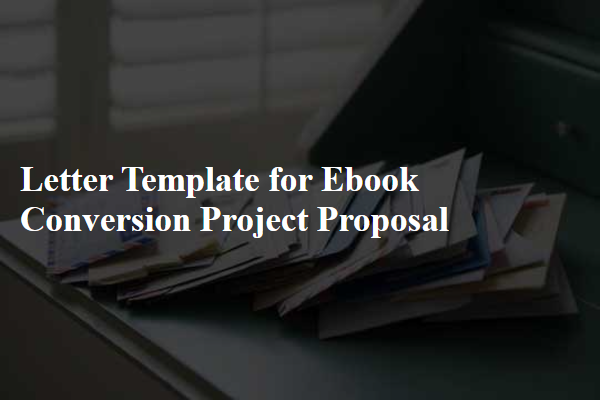
Project Scope and Goals
The ebook conversion project aims to transform existing printed materials into accessible digital formats suitable for various devices, particularly e-readers and tablets such as Kindle and iPad. This project targets a collection of over 300 titles, encompassing genres like fiction, non-fiction, and educational textbooks. The primary goals include ensuring high-quality text conversion with precision formatting--adhering to industry standards such as EPUB 3 and MOBI. Accessibility features, such as text-to-speech compatibility and adjustable font sizes, will enhance user experience for diverse audiences, including individuals with visual impairments. Collaboration with authors and publishers will be prioritized to preserve original content integrity while optimizing for digital presentation. Comprehensive quality assurance will be implemented to verify formatting consistency across platforms and devices. The project timeline aims for completion within six months, aligning with budget constraints and resource allocation.
Timeline and Milestones
The ebook conversion project encompasses multiple phases, each with its own timeline and milestones aimed at ensuring a smooth and efficient transition from traditional formats to digital formats. Initial planning phase (two weeks) involves assessing content and selecting appropriate ebook formats such as EPUB or MOBI. Following planning, content formatting phase (three weeks) includes converting text, images, and graphics to digital-friendly versions while ensuring compatibility with devices like Kindle and tablets. Next, quality assurance phase (two weeks) focuses on proofreading and testing functionality across various platforms to identify and rectify any issues. Finally, the launch phase (one week) entails publishing the ebook on major platforms such as Amazon Kindle Store and Apple Books, ensuring accessibility for a diverse audience. Each phase features specific milestones, such as completion of content analysis, first draft of formatting, and successful testing for user experience and engagement.
Budget and Cost Estimates
In a detailed project proposal for an eBook conversion initiative, essential financial elements must be addressed comprehensively. The total budget, estimated at $7,500, encompasses various cost categories, including software licensing fees for professional eBook creation tools, typically ranging from $500 to $1,500 annually. Labor costs represent a significant portion, projected at $4,000 for skilled personnel handling formatting, editing, and quality assurance, necessary for ensuring compliance with industry standards (such as EPUB and MOBI formats). Additional expenses include graphic design fees for cover art, estimated at $600, and marketing costs to promote the eBook, budgeted at $1,000 for social media campaigns and online advertising. A contingency reserve of 10% ($750) has been included to accommodate unforeseen costs, guaranteeing project completion within the designated timeline. Clear cost breakdowns facilitate transparent financial planning and resource allocation, ensuring all stakeholders are aligned on expected expenditures throughout the conversion process.
Technical Specifications
An eBook conversion project requires meticulous attention to various technical specifications to ensure high-quality digital publication. File formats, such as EPUB 3.0 and MOBI, are essential for compatibility with different eReaders, including Amazon Kindle and Apple Books. Image resolution should be at least 300 DPI to ensure clarity on high-definition screens. Implementing EPUB accessibility standards (WCAG 2.0) guarantees usability for individuals with disabilities, enhancing reach. Metadata, including title, author, and ISBN, needs to be accurately embedded for effective cataloging in platforms like Google Play Books and Kobo. Ensuring proper formatting of HTML and CSS is crucial for maintaining layout integrity across diverse devices and display sizes. Another key aspect is testing across multiple devices and applications for functionality and formatting consistency.
Quality Assurance and Deliverables
In an eBook conversion project, quality assurance plays a crucial role in ensuring the final product meets industry standards and user expectations. Various elements such as formatting, encoding, and compatibility should be meticulously checked. For instance, verification of correct formatting styles in both EPUB and MOBI formats is essential to accommodate various e-reader devices, such as Amazon Kindle and Apple iBooks. Deliverables typically include a comprehensive quality assurance report highlighting any discrepancies, adherence to specifications established in the project scope, and an iterative review process involving multiple rounds of testing. Accessibility features, including alt text for images and navigational aids, must also be confirmed to cater to all users, including those with disabilities. Ultimately, the goal is to deliver a polished eBook that provides an excellent reading experience across devices, ensuring readability and visual appeal remain intact.

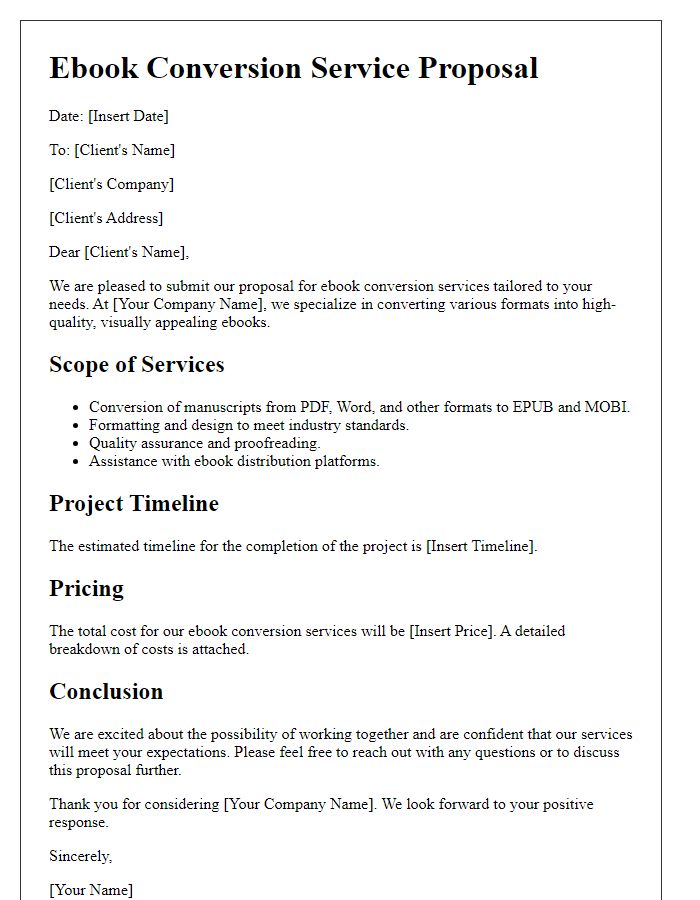
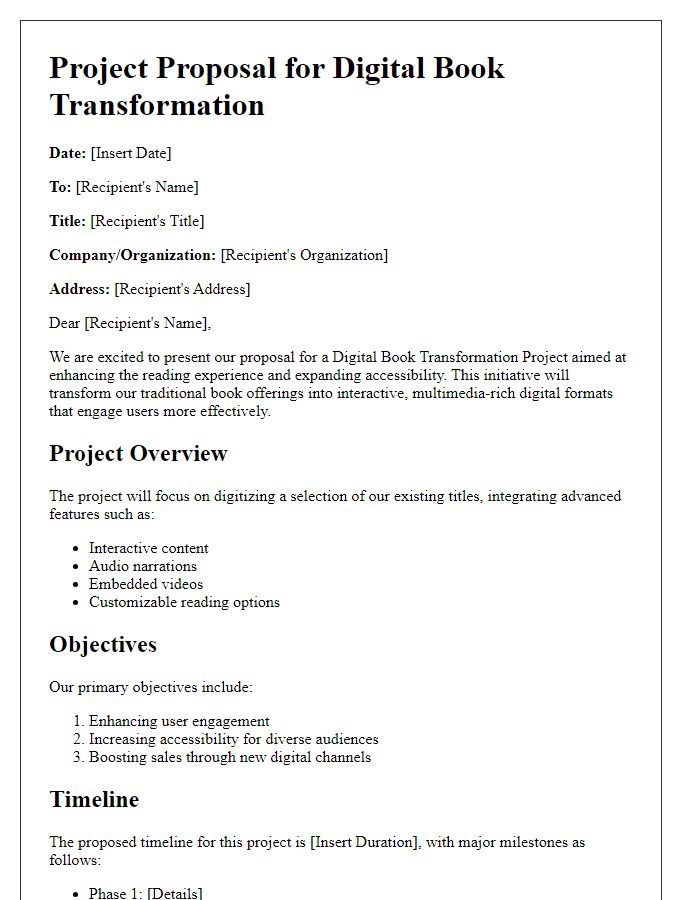
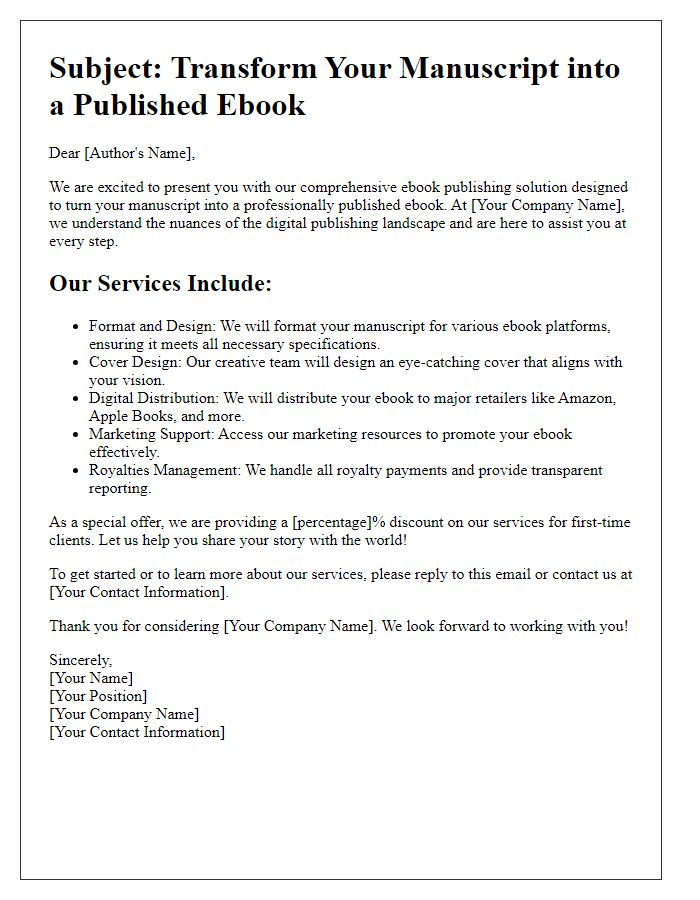
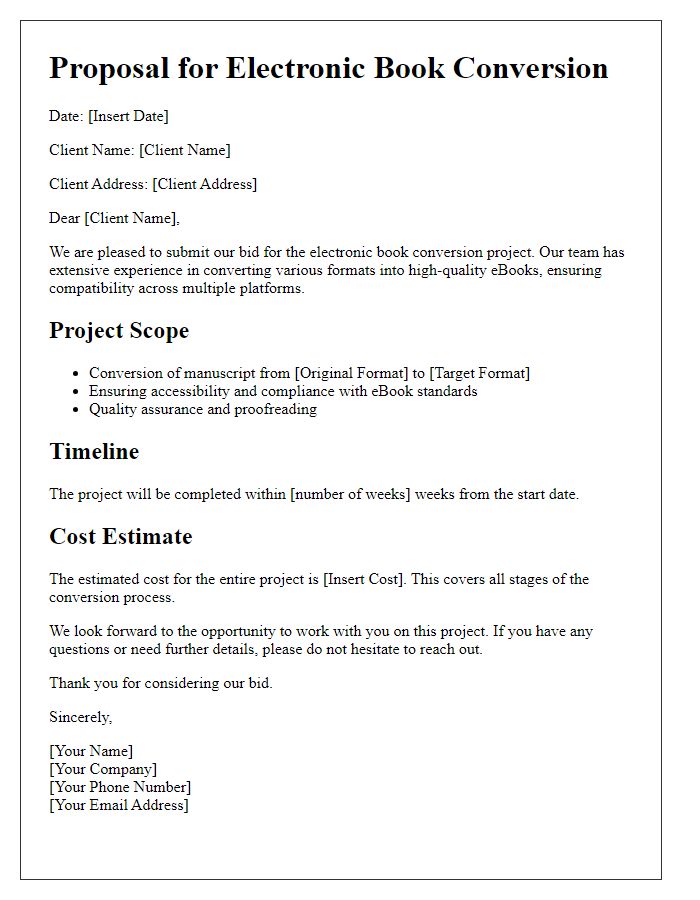
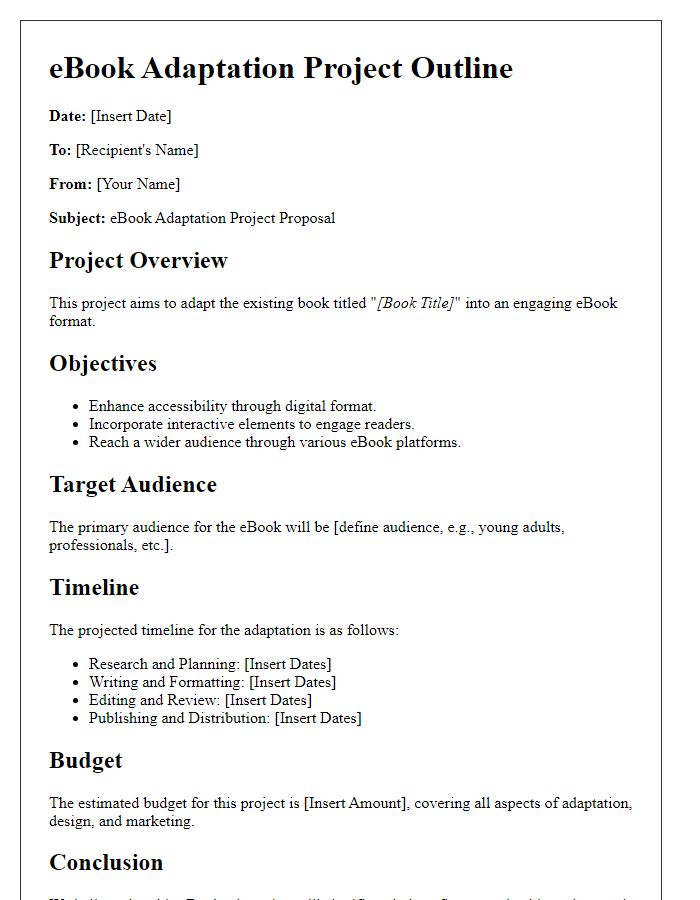
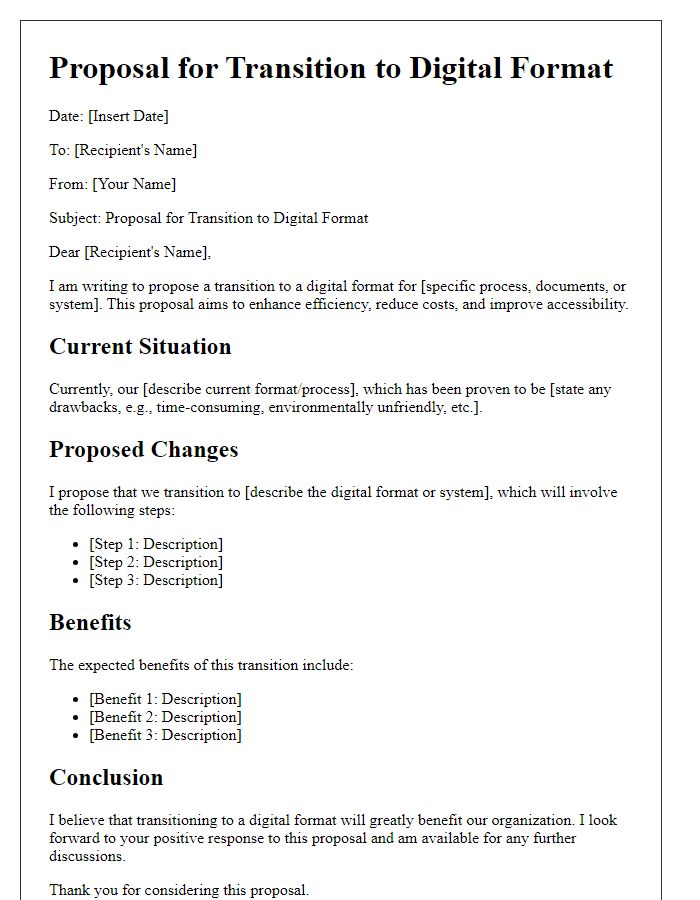
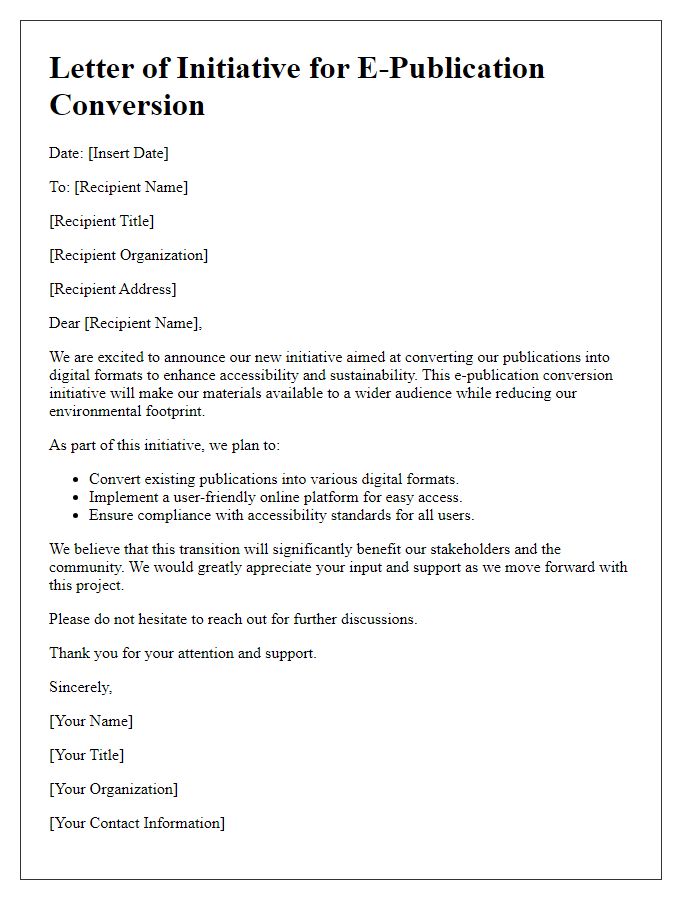
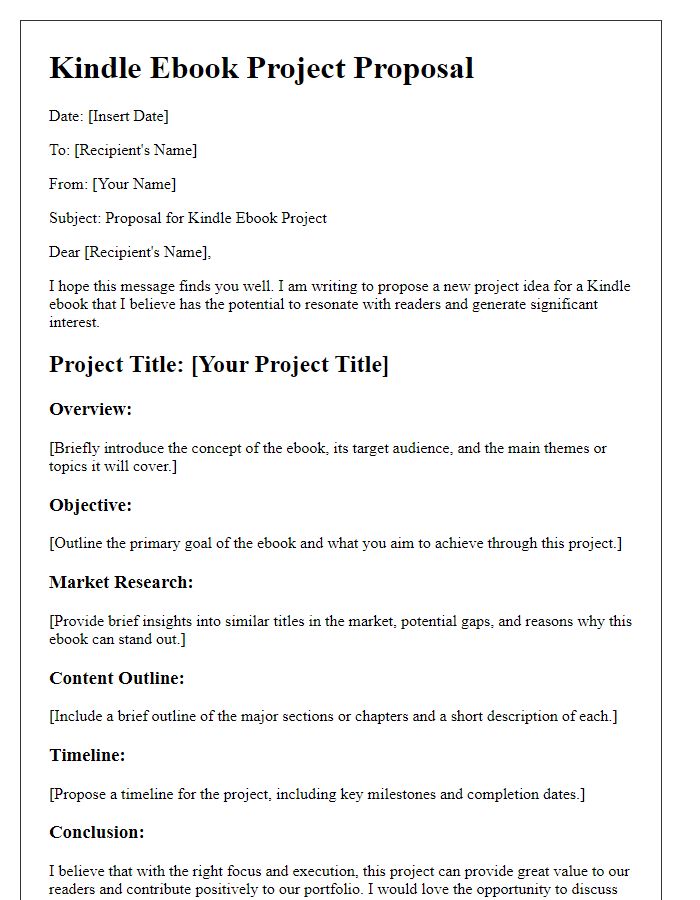
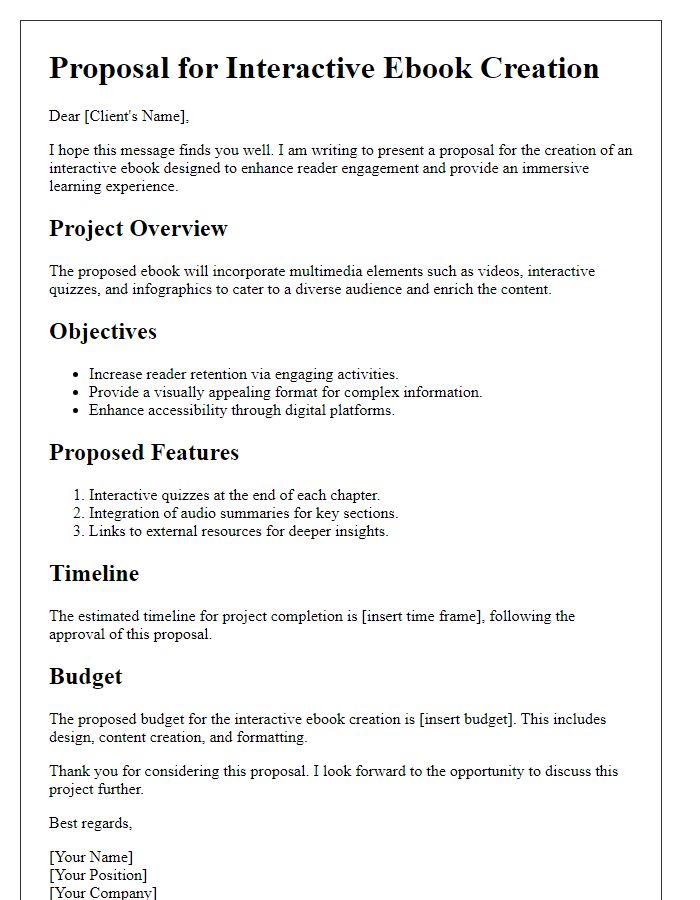
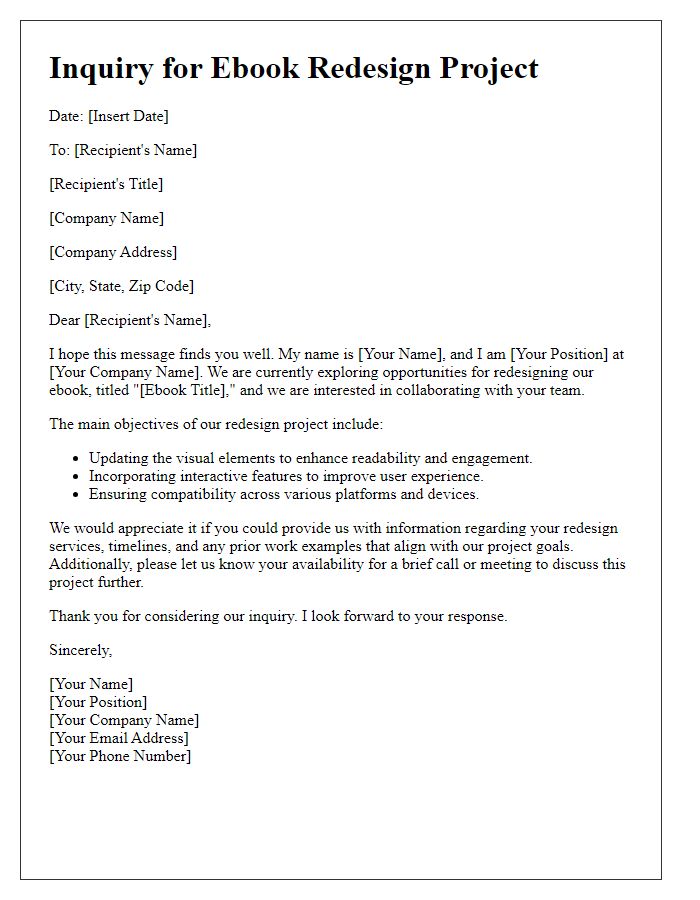

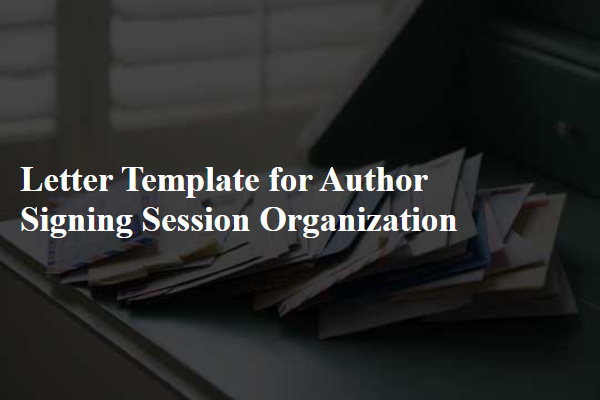
Comments